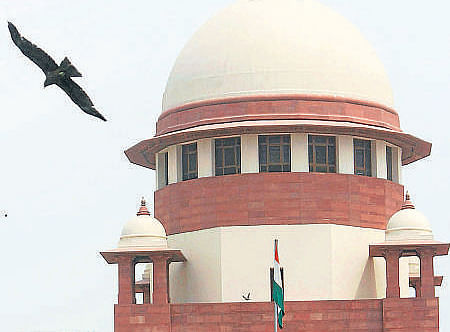Nine days after the controversial verdict on Section 377, the Centre on Friday filed a review petition in the Supreme Court to “avoid grave miscarriage of justice” to thousands of LGBTs (lesbians, gays, bisexuals and transgenders).
The apex court verdict on December 11 threw a Delhi High Court ruling, decriminalising the section dealing with the LGBTs, into the bin. It revived Section 377 of the IPC, making gay sex an offence punishable with life term. Seeking a revision, the Centre has now said “recriminalisation” of sexual intercourse between same sex consenting adults put the LGBTs at risk of prosecution and harassment.
The Congress has voiced its opposition to the ruling, with party president Sonia Gandhi and vice-president Rahul Gandhi coming out in the open against the verdict, while Law Minister Kapil Sibal said the government would take remedial measures. In its petition, the Centre listed 76 grounds to state that the judgment “suffers from errors apparent on the face of the record, and is contrary to well-established principles of law laid down by this court enunciating the width and ambit of Fundamental Rights under Articles 14, 15 and 21 of the Constitution.”
Reacting to the Centre’s move, Anjali Gopalan, founder of Naz Foundation, which has been in the forefront of the legal fight to decriminalise Section 377, said: “We also plan to file a review petition. We will continue to work with communities to change their mindset. To bring about any, we need to change the law,” she said.
The Centre has requested the Supreme Court to hear arguments in an open court before disposing of its review petition. Usually, such petitions are decided in chamber hearings. In the petition filed through lawyer Devdutt Kamath, the Centre said the judgment delivered by Justice G S Singhvi (since retired) and Justice S J Mukhopadhaya “suffers from glaring legal errors and seeks to invoke certain legal principles which were inapplicable in the facts of the present case”.
